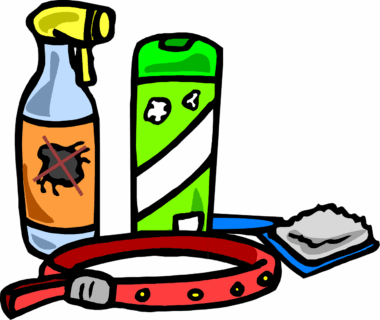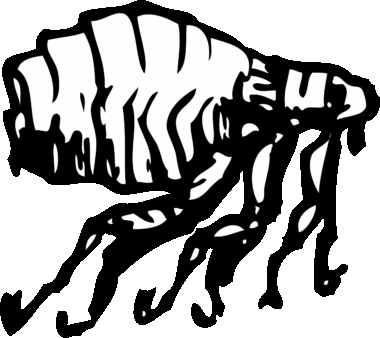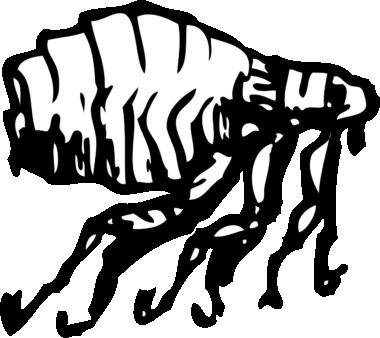Safe and Effective Methods for Dog Parasite Control
Dogs, like all pets, can fall victim to various parasites that can significantly affect their health. Parasites such as fleas, ticks, and worms thrive in environments that allow them to easily attach to their hosts. An awareness of common parasites is crucial for any dog owner. Fleas, for instance, can lead to severe itching and discomfort, while ticks can transmit serious diseases. Worms possess the capability to cause severe health issues, including malnutrition. Thus, ensuring that your dog remains parasite-free is essential to their well-being. Regular veterinary consultation can aid in identifying potential parasites and establishing a proper prevention routine. Additionally, maintaining cleanliness in your dog’s environment will help reduce exposure risk. Always consult your veterinarian for recommendations on suitable products to prevent infestations. By staying informed about these potential threats, pet owners can take proactive steps to safeguard their furry friends. This vigilance is a vital part of responsible pet ownership, ensuring that dogs lead happy, healthy lives free from the burden of parasites. Furthermore, integrating effective parasite control methods is not only beneficial for dogs but also essential for families and communities that interact with these beloved pets.
There are several effective methods available today for dog parasite control that can ensure your furry friend’s safety and well-being. One of the first steps includes applying topical treatments which are usually recommended by veterinarians. These treatments act to repel or kill parasites like fleas and ticks efficiently. Oral tablets that function as preventive medication are also available and provide a more straightforward application process for many dog owners. Additionally, regular baths using specialized shampoos can be beneficial in controlling fleas, leaving a fresh scent while providing protection. It’s essential for owners to maintain a schedule for administering medications and treatments to maximize their effectiveness. When evaluating options, consider factors like age, weight, and medical history of the dog. Furthermore, exploring natural remedies has gained popularity, with many owners now utilizing essential oils and herbal treatments as alternatives. However, caution is vital since not all natural remedies are safe for pets. Always check with a veterinarian before starting these treatments. Lastly, educating yourself on the common signs of parasite infections can intervene early to prevent severe complications from arising.
The Importance of Regular Health Checkups
Regular health checkups play a significant role in timely parasite detection and management. During these visits, a veterinarian can perform examinations and lab tests to determine if your dog has any parasites. This proactive approach allows you to address potential health issues before they escalate. Most veterinarians recommend annual checkups; however, some breeds may require more frequent visits based on their health history. It’s also an opportunity to discuss preventive measures, provide vaccinations, and adjust treatments if needed. Veterinary professionals often keep up with the latest research, offering insights into evolving parasite threats and optimal management strategies. Investing in regular checkups is a small price to pay compared to the medical expenses associated with untreated parasite infestations. Keeping your dog up to date on vaccinations is equally important, as these can help prevent various diseases carried by parasites. Owners should prioritize finding a trustworthy veterinarian who understands their pet’s specific needs. Additionally, maintaining a written record of health visits ensures transparency and consistent care, helping to establish a solid foundation for your dog’s long-term health.
Preventive measures also encompass maintaining a clean living environment for your pet. Regularly vacuuming and washing your dog’s bedding can significantly reduce the risk of flea infestations. Additionally, pest control measures in your backyard will limit the chances of your dog encountering ticks and other parasites when outdoors. Consider adopting routine grooming habits to catch any early signs of a parasite issue. Brushing your dog not only keeps their coat healthy but also helps in spotting fleas and ticks before they multiply. Remember to check their ears, paws, and tail areas, as these places are common hiding spots for pests. Beyond grooming, opting for flea and tick prevention products such as collars, sprays, and powders can offer added protection. Many pet owners explore options available in pet stores or online, ensuring they opt for flea and tick products specifically designed for dogs. Selecting trusted brands that offer safe formulations is crucial to ensuring the efficacy of chosen products. Lastly, educating yourself on seasonal trends regarding pest activity provides better insight into anticipation and prevention.
Recognizing Signs of Parasite Infestation
Understanding and recognizing the symptoms of parasite infestations in dogs can save lives. Fleas can be detected by signs such as continuous scratching, red or irritated skin, and even hair loss. On the other hand, ticks may attach themselves in hard-to-spot areas, leading to potential disease transmission, such as Lyme disease. If your dog exhibits lethargy, lack of appetite, or unusual behavioral changes, these could indicate a parasite issue. Worms particularly show symptoms like vomiting, diarrhea, or a bloated abdomen, and require immediate veterinary attention. Regular monitoring of your dog’s health status aids in detecting these discrepancies early on. Keeping a watchful eye on their waste is equally important; presence of worms can sometimes be observed in feces. Aside from physical signs, behavioral alerts such as excessive itching or restlessness could indicate discomfort from parasites. Owners must understand that even seemingly minor changes could signal significant health concerns. If any abnormalities arise, consulting your veterinarian promptly is essential for successful treatment. Early intervention often leads to effective control and can prevent ongoing health complications down the line.
In addition to the various common treatment options, it’s essential to consider holistic approaches for dog parasite control. Holistic methods often emphasize balancing your dog’s overall health to provide a robust defense against parasites naturally. A healthy diet rich in proteins, vitamins, and minerals builds your dog’s immune system, thus improving its ability to fight off parasites. Adding supplements, such as omega-3 fatty acids, could promote healthy skin and coat, making it less appealing for pests. Many pet guardians are also becoming interested in integrating herbal preparations into their dog’s routine, which may provide added pest resistance without harsh chemicals. However, it’s critical to consult a veterinarian about which holistic remedies are safe and effective for your specific breed. Additionally, a strong focus on maintaining adequate sanitation practices, such as promptly disposing of waste, plays an important role in limiting parasite exposure. Remember to remain consistent in implementing preventive measures, as a comprehensive strategy utilizing various methods maximizes parasite control success. Ultimately, the right blend of conventional and holistic methods will determine the best regimen for your dog.
Conclusion: Commitment to Your Dog’s Health
The commitment to maintaining your dog’s health extends beyond just providing food and shelter. Active engagement in their health includes ensuring adequate parasite control measures are in place. By understanding the various aspects of dog parasite control and including vet visits, preventive products, and grooming, pet owners can greatly enhance their dog’s quality of life. By comprehensively exploring available options, you will be better equipped to select the proper methods that suit your specific needs. With a proactive approach, it’s possible to prevent potential infestations before they manifest. Always remain vigilant for new information in pet care as research continues to evolve. Implementing a consistent health regimen ensures lasting relationships with your dog, filled with joy and companionship. Your commitment directly ensures your dog’s overall well-being, happiness, and longevity. Taking these steps will not only contribute to a healthier pet but will also foster a stronger bond between you and your beloved animal. Ultimately, the effort put into ensuring effective parasite control will yield fruitful results for years to come, thus underscoring the importance of responsible pet ownership.
This final segment emphasizes the ultimate point that a commitment to dog parasite control is essential for all pet owners. Dogs rely on their owners to provide effective means of protection from parasites for their health and happiness. Utilizing a mix of preventive strategies, education, and vigilance ensures your dog remains happy and healthy. By consistently applying treatments and maintaining awareness of signs and risks, you can sustain effective parasite management. Don’t forget the importance of fostering regular communication with your veterinarian as your primary resource in this regard. Consultations should be approached as an opportunity to refine your pet care strategies, ensuring they evolve with your dog’s needs. Staying informed about new developments in preventive care also contributes to a healthier environment for your pets. Overall, take pride in implementing parasite control measures not only for your dog’s sake but for broader community health. Responsible pet ownership means taking charge of your pet’s health journey. Ultimately, this journey involves commitment and proactive actions, resulting in lifelong enjoyment and companionship. Make parasite control an integral part of your pet care regimen, as this ensures the health and well-being of your beloved furry friend.





